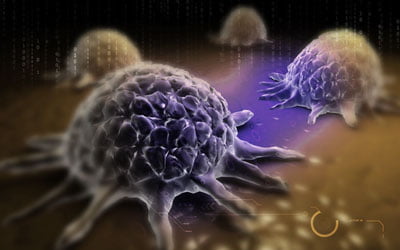Targeting cancer’s nutrient seeking protein could restrict growth
Posted: 5 October 2015 | Victoria White
Initial studies by Oxford University researchers show that targeting the protein, called PAT4, could restrict cancerous cells’ ability to grow…


Oxford University researchers have identified a protein used by tumours to help them detect food supplies.
Cancer cells often have restricted access to the body’s nutrient-rich blood supply. The ability to sense and acquire nutrients is critical for a cancer to grow. Cancer cells can use strategies that make them resistant to this nutrient deprivation. Initial studies show that targeting the protein, called PAT4, could restrict cancerous cells’ ability to grow.
Dr Deborah Goberdhan, from Oxford University’s Department of Physiology, Anatomy and Genetics, said, “We found that aggressive cancer cells manufacture more PAT4, which enables them to make better use of available nutrients than the cells around them – including healthy tissue.”
Reduced PAT4 levels was associated with slower tumour growth
The researchers developed an antibody that could be used to highlight PAT4 in human tissue samples. This was then used to study anonymous tumour samples taken from patients with colorectal cancer, a common form of the disease.
The results were compared to the known outcomes for the patients. Those who had higher levels of PAT4 in their tumours did less well than those with lower levels – being more likely to relapse and die. The researchers then looked at what happened when PAT4 levels were reduced. They showed that by reducing PAT4 levels, cancerous tumours grew more slowly.
Dr Goberdhan said, “These findings support each other. Not only do higher levels of PAT4 mean a worse outcome, but lowering levels improves the situation. This means that we have identified a mechanism, which cancer cells prefer to use and which we might be able to target as part of a combination treatment.”
Related topics
Oncology
Related organisations
Cancer Research, Oxford University


